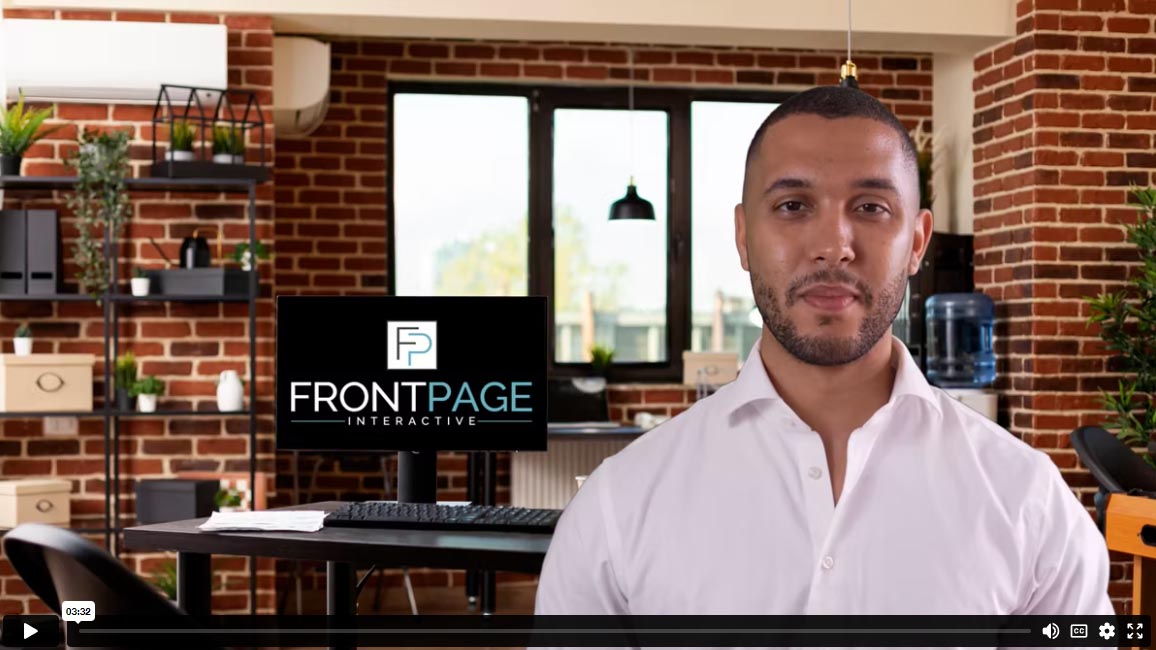Search Engine Optimization, also known as SEO, is a constantly evolving field, and over the years, many myths have emerged about how it works.
At Front Page Interactive we’ve helped hundreds of SEO clients and I’d like to take a few minutes to share with you the kind of SEO tactics that other agencies claim to be “proven strategies” that simply do not work.
Here are the top 10 myths about SEO that many agencies don’t want you to know:
1. Meta tags boost rankings
There was a time when meta tags were a significant ranking factor, but that’s no longer the case. While meta descriptions are crucial for click-through rates, they do not directly influence rankings.
2. Keyword stuffing works
Overloading a page with keywords won’t help it rank higher. Modern search algorithms prioritize content quality over keyword density. In fact, keyword stuffing can actually harm your SEO efforts.
3. SEO is a one-time effort
search engine optimization requires ongoing maintenance. As search algorithms change, you may need to adjust your tactics. Your competition is also continually optimizing, so staying static is not an option.
4. Buying links will boost rankings
While backlinks are a significant ranking factor, buying them can lead to penalties. Google and other search engines emphasize the importance of natural link building.
5. More links mean higher rankings
Quality often matters more than quantity. A few high-quality backlinks from authoritative sites can be more beneficial than numerous low-quality ones.
6. Guest posting is dead
Matt Cutts, a former head of the web spam team at Google, once remarked that guest blogging for SEO was becoming “overdone.” Some misinterpreted this as “guest posting is dead.” In reality, high-quality, relevant guest posts are still valuable both for SEO and for brand exposure.
7. SEO is all about rankings
While high rankings are desirable, the end goal is usually more organic traffic, better user engagement, and conversions. It’s possible for a page to rank well but not attract many clicks or for a lower-ranked page to get more traffic due to a compelling meta description or title.
8. Local SEO is not important
For businesses serving local clients, local SEO is crucial. Ensuring your business is listed correctly in local directories, optimizing for local keywords, and garnering positive reviews can significantly impact your visibility in local search results.
9. Duplicate content results in a penalty
There’s a widespread belief that duplicate content will lead to a penalty from search engines. In reality, search engines don’t “penalize” sites for duplicate content per se. However, they might choose to display only one version of the duplicated content in search results, which can impact visibility.
10. Loading speed is not important
Page speed has been a known ranking factor for a while now. Slow-loading sites can hinder user experience and adversely affect rankings. Plus, with the emphasis on mobile-first indexing, site speed on mobile devices is even more crucial.
It’s important to note that SEO best practices can change over time. Always ensure you’re getting your information from reputable sources and stay updated on changes in the field.
If you’re interested in having your current digital marketing campaign reviewed or your website optimized for search, I urge you to schedule a free, no-obligation strategy session with one of our specialists. We have helped hundreds of organizations enhance their online presence and improve lead generation and we’d like to demonstrate how we can make a difference for your business too.
So, take a moment to schedule a complimentary strategy session and we will look forward to sharing with you the many ways we can take your business to the next level.









